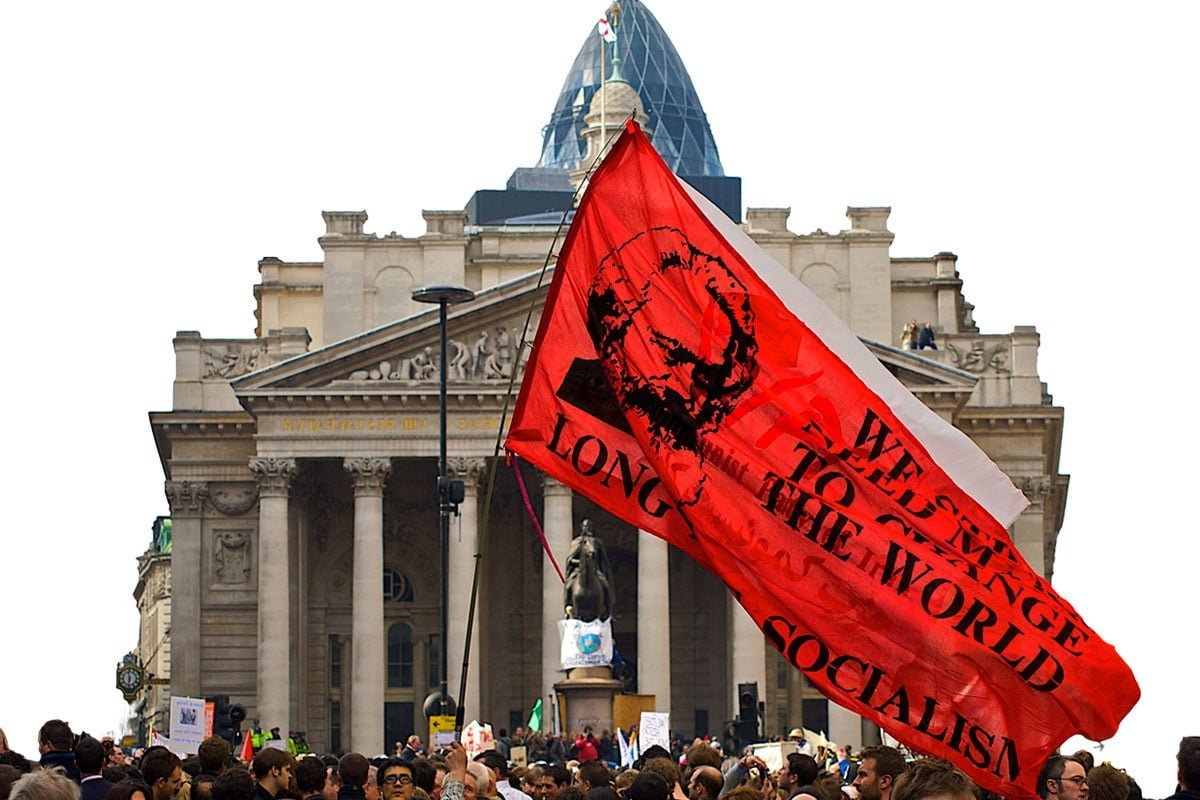For the ruling class, the new year is starting as the old one ended: with great uncertainty surrounding the prospects for the capitalist system. Welcome to the new normal of economic crisis and social upheaval.
“It is not difficult to see that our epoch is a birth-time, and a period of transition. The spirit of the age has broken with the world as it has hitherto existed…”
So wrote the 19th century philosopher Hegel. Today, too, we are seemingly in a “birth-time” – a transition from one social system to another.
“Capitalism in flames; populism and nationalism on the march across Europe; a US president bent on demolishing free trade; a British shadow chancellor calling openly for the overthrow of capitalism itself,” agonised an anxious Jesse Norman, Conservative Member of Parliament, only last summer. “The 21st century is not going to script.”
Recent events in France – where protests of the ‘yellow vests’ and the students have paralysed Paris and other cities – provide a further graphic indication of the turmoil in society.
Not so long ago, Emmanuel Macron was regarded by the Western elite as a saviour of the political “centre ground” after winning the French presidency. But events in France today mean that Macron is finished and the hopes of the liberals have gone up in smoke. There is a sharp polarisation both to the left and to the right. The “centre” has been destroyed. Welcome to the “new normal”.
“Macron’s dogmatic stance has suddenly turned the conflict into a pre-revolutionary crisis,” grimly stated Die Presse, a German language newspaper recently. “In the ranks of the demonstrators, but also among the bourgeois shocked by the chaos in Paris, there is talk of the storm of the Bastille in 1789 or of May ’68.”
The British Foreign Secretary, Jeremy Hunt, has warned that such social conflict could happen in Britain also, where an angry and bitter mood is brewing. Brexit was only one expression of this mood. Britain – the country that studiously avoided revolution (so we were told) – has now been infected with the same virus.
Storm clouds ahead
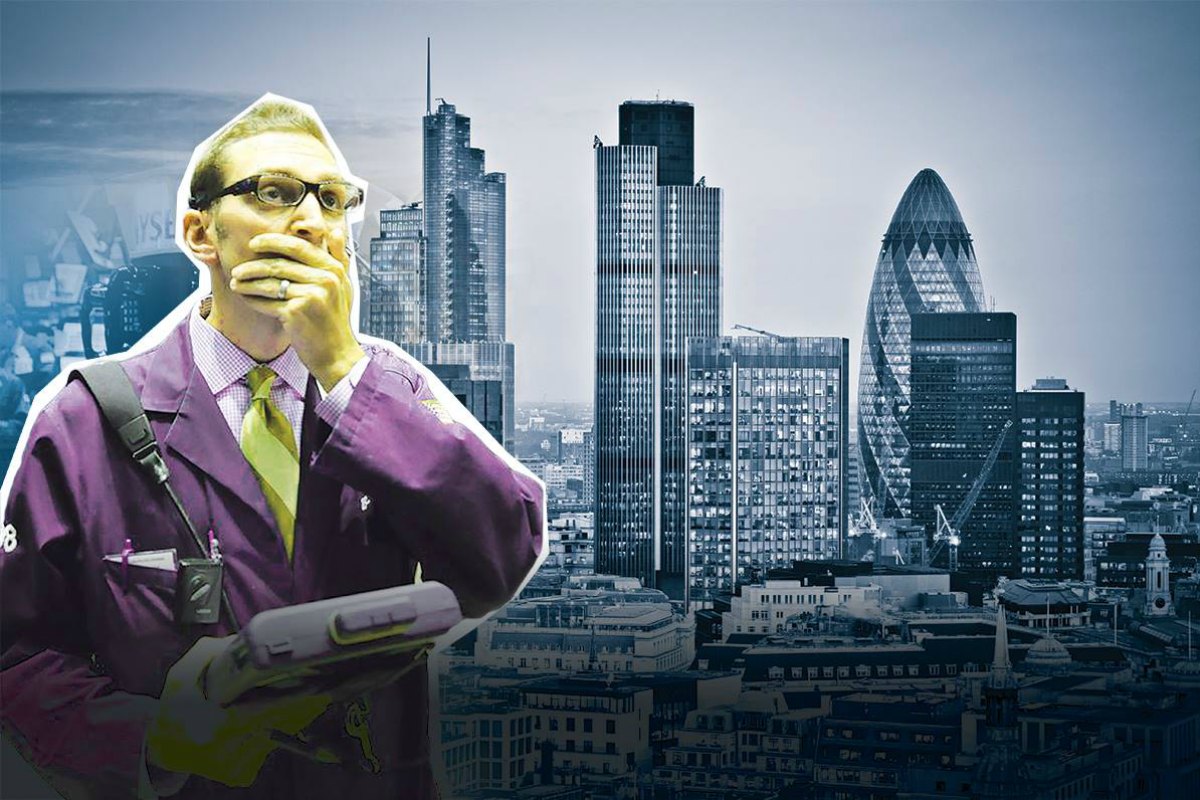 As the capitalist system declines, society finds itself in an epoch of social crises. We are in a period of sharp changes and sudden turns, not only in Europe but on a global scale. This is a reflection of the impasse of the current socio-economic system. Capitalism has reached its limits and is unable to develop the productive forces as in the past.
As the capitalist system declines, society finds itself in an epoch of social crises. We are in a period of sharp changes and sudden turns, not only in Europe but on a global scale. This is a reflection of the impasse of the current socio-economic system. Capitalism has reached its limits and is unable to develop the productive forces as in the past.
The IMF, OECD and other capitalist institutions are slashing their projections for economic growth. In 2018, Europe’s banks suffered their worst year since the eurozone crisis. Ominously, the Dow Jones Industrial average and the S&P 500 have had their worst December since 1931.
The gyrations on the stock market are a harbinger of a new world slump. The serious strategists of capital are now alarmed at the dangerous situation facing them. The long period of relative stability that emerged from the Second World War has become just a distant memory. This coming year will hold many more shocks and upheavals.
Last year, it looked as if there might be some rays of sunshine on the horizon for the bosses. After all, the US economy was growing by 4% a year. If this growth is sustained until July 2019, it would be 121 months since the end of the last slump. This would make it the longest ‘boom’ in the post-war period.
But the USA’s economic expansion has dynamite built into its foundations. It is based on Trump’s tax cuts, which have led to the biggest budget deficit outside of a slump or war. This is clearly unsustainable. Another bubble is being inflated – and it is about to burst.
With a new world slump looming, the strategists of big business are shaking in their boots. As Stephen King, senior economics adviser at HSBC, bluntly put it: “Having used up much of their policy ammunition 10 years ago, there’s little left to fight another financial war. And yet the fault lines are there for all to see.” (Evening Standard, 26/11/18)
“Every 10 years or so a financial crisis hits global markets – and it’s 10 years since the last one,” explained Patrick Collinson in the Guardian. “This week the IMF warned that not only are the storm clouds of the next global financial crisis gathering, but also that the world financial system is unprepared for another downturn.” (The Guardian, 15/12/18)
As in the run up to the 2008 slump, the world economy is awash with debt. In fact, the world has never been so indebted. According to the Bank of International Settlements, global debt was 217% of GDP at the end of 2017, up by more than 20% from 2007. In emerging economies, debt was 50% higher.
With historically low interest rates and an abundance of cheap money sloshing around, capitalists have been taking on ever more risk as they search for profitable opportunities. In contrast with the rest of the world, however, interest rates in the USA are rising. As a consequence, the value of the dollar is rising. This has created a toxic situation for the so-called ‘emerging’ economies, where currencies have fallen and costs of borrowing have soared. This is another pointer to the onset of a new slump.
Organic crisis
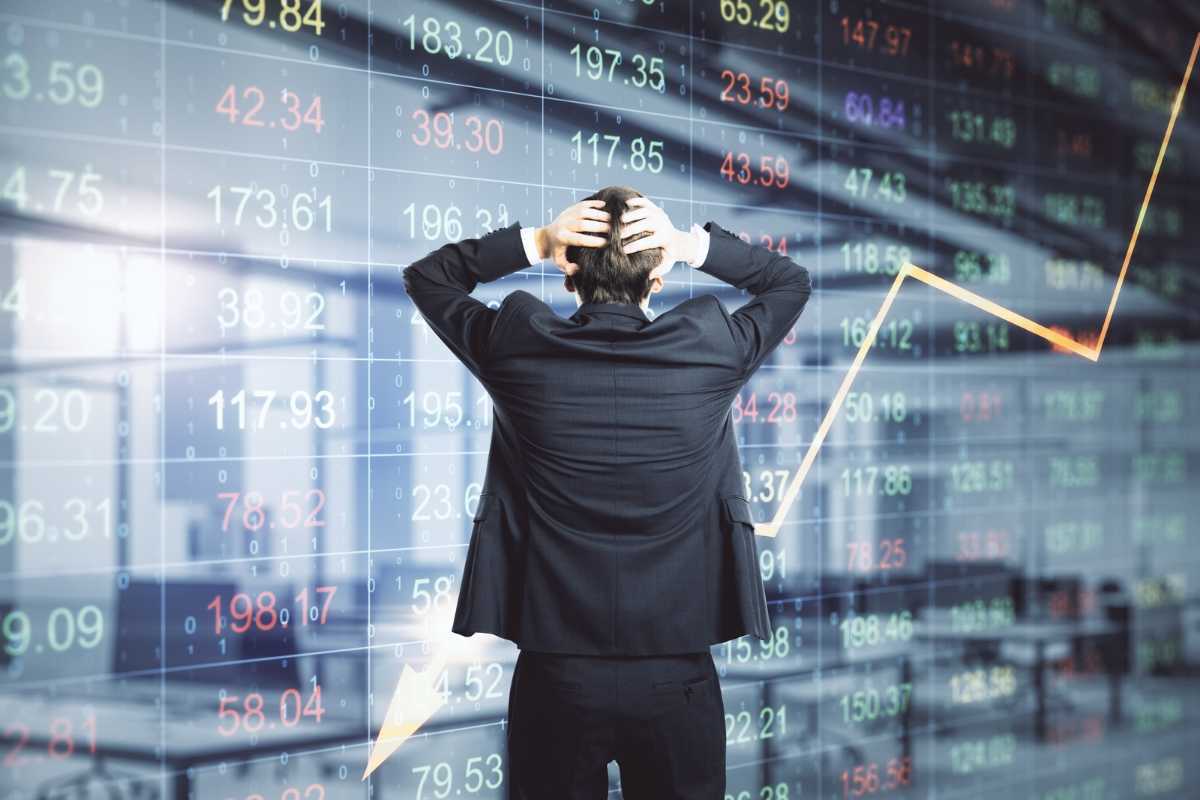 These are all symptoms of the exhaustion of the present ‘recovery’. For the capitalists, access to money is not the problem. They are sitting on mountains of the stuff. The problem is a lack of avenues for profitable investment in the real economy.
These are all symptoms of the exhaustion of the present ‘recovery’. For the capitalists, access to money is not the problem. They are sitting on mountains of the stuff. The problem is a lack of avenues for profitable investment in the real economy.
This explains the dismal state of productivity. The health of any economy ultimately lies with its productivity: how much output is produced per worker per hour. But productivity growth has come to a standstill. Again, this is due to the failure of the capitalists to invest.
The reason why there is so little investment, apart from in a few sectors, is the presence of widespread “excess capacity” in the system, as the capitalist economists describe it. It is the existence of overproduction. Why invest when there is already too much capacity, with markets already saturated?
Consumer spending remains flat or is even falling. This has a big impact on the market and ‘effective demand’, since 70% of the market is made up of consumer spending. This is being compounded by the lack of investment in industry, which also makes up a key segment of the market.
Both factors – of stagnant investment and limited consumer spending – are acting as a disincentive for businesses to invest and produce. Industry is running at less than 80% of capacity in this supposed ‘boom’. When the next slump hits this will fall to less than 70%, and in many sectors less than 60%. This is a graphic expression of the organic and structural nature of this crisis – a crisis embedded into the very DNA of the capitalist system.
Marxism vs Keynesianism
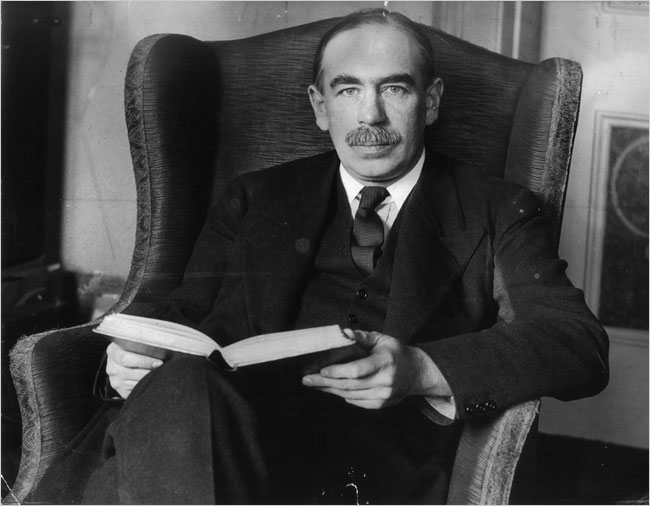 The Keynesian economists believe they have the answer. Their theories are very fashionable in certain quarters, especially amongst the tops of the labour movement.
The Keynesian economists believe they have the answer. Their theories are very fashionable in certain quarters, especially amongst the tops of the labour movement.
The Keynesians believe that the crisis is the result of a shortage of ‘demand’. If the economy was ‘stimulated’, all would be well. Governments, they say, should simply borrow money and spend. Businesses, meanwhile, should be taxed to redistribute wealth to households and increase demand.
This sounds like an easy solution. The lack of demand, after all, is certainly a characteristic of capitalist crises. However, the Keynesians fail to understand that the capitalists are not just interested in markets, but profitable markets. They don’t simply produce for the sake of it, but for profits and profits alone. If there is not sufficient profit, then the capitalists will not invest or produce. Instead, they will shut down production.
But profit, as Marx explained, comes from the unpaid labour of the working class. The more unpaid labour that can be squeezed out of workers the better. This is the driving force of the capitalist system. It is why there is austerity, wage cuts, and competitive downward pressures on workers’ conditions.
If the capitalists are to invest and the system is to grow, profitability needs to be driven up. But this means reducing costs for big business and cutting the share of wealth going to the working class. This bites into government spending, reduces the market, and cuts demand. The whole process becomes a vicious circle of declining wages, reduced demand, and falling investment.
Marx explained this over 150 years ago. Now his ideas are being taken more seriously, even in capitalist circles. But you can’t simply patch up the system. You can’t cure cancer with an aspirin. There is no way out of the crisis on a capitalist basis.
Backlash
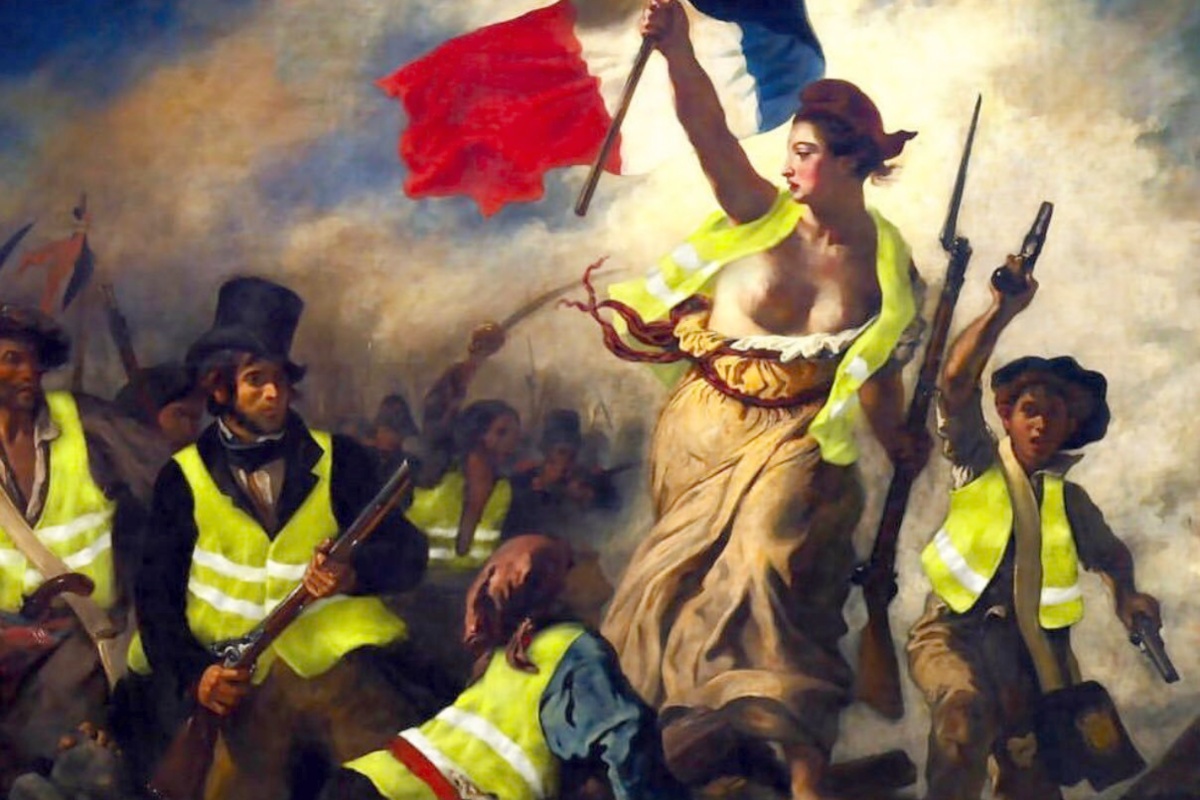 Instead, the ‘recoveries’ have become shorter and the slumps deeper. As a consequence, we have had nearly a decade of austerity – a seemingly permanent feature for workers.
Instead, the ‘recoveries’ have become shorter and the slumps deeper. As a consequence, we have had nearly a decade of austerity – a seemingly permanent feature for workers.
“While a rising share of national income has gone to the owners of capital,” explained Jeremy Corbyn, the Labour leader, “pay has lagged behind growth and real wages are now £800 a year lower than a decade ago.”
This attack on the working class arises from the crisis and the laws of capitalist competition. It has meant a greater and greater concentration and centralisation of capital in fewer and fewer hands.
“Accumulation of wealth at one pole,” wrote Marx, “is, therefore, at the same time accumulation of misery, agony of toil, slavery, ignorance, brutality, mental degradation, at the opposite pole.”
The polarisation of wealth, combined with the wider crisis of capitalism, is creating a backlash – socially and politically. While the rich and powerful flaunt their wealth, many ordinary people feel that they have been ‘left behind’.
The close vote on Scottish independence; the Brexit vote; the victory of Donald Trump; the rise of Bernie Sanders and Jeremy Corbyn; the upheavals in France: all of these are reflections of the deep crisis of the system internationally. The mood in society is increasingly an anti-establishment and anti-capitalist one.
These are troubling times for the establishment. “Britain likes to think of itself as a sensible place that ultimately muddles through,” explained the Economist recently. “The coming year could see that great illusion shattered.”
Even the Archbishop of Canterbury said that Britain was facing a “crisis of capitalism” and that the system was teetering on a precipice. “Things could go seriously wrong,” the Archbishop stated, warning of a sharp turn in the mood within society. “It can turn very, very strongly against business.” He added: “It’s more than a crisis of capitalism, it’s also a national crisis.” These are very astute remarks, not only coming from a man of the cloth, but from a former oil executive.
This theme was echoed by John Authers in the Financial Times, who said: “Trust has broken down throughout society. From angry lynch mobs on social media to the fracturing of the western world’s political establishment, this is an established fact of life, and is not merely true of politics. Over the past three decades, trust in markets has evaporated.” (Financial Times, 4/10/18)
But these warnings will have little effect, as there is little the ruling class can do. However much they try, they cannot resolve the contradictions of capitalism. The system is heading for a massive collapse, as in 2008. The serious representatives of capitalism understand this, but are powerless to prevent it.
Technology and automation
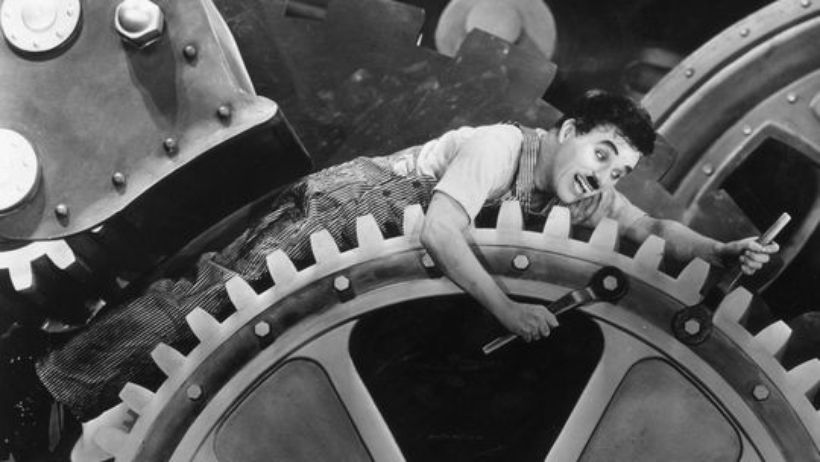 It is the task of the labour movement and the working class to put this rotten system out of its misery.
It is the task of the labour movement and the working class to put this rotten system out of its misery.
Any programme that hopes to patch up capitalism is doomed to failure. The reformists have talked about reforming capitalism into socialism, bit by bit, for more than 100 years. But we are further away from this goal than ever before. The system can no longer afford – and will therefore not grant – any lasting reforms. The capitalists are instead firmly set on counter-reforms, systematically talking back the gains of the past to bolster profits.
No wonder, then, that the governor of the Bank of England, Mark Carney, has openly speculated that there could be a large-scale revival of Marxist ideas in Britain. “If this world of surplus labour comes to pass, Marx and Engels may again become relevant,” he stated last year. For a key defender of capitalism to admit this fact is extraordinary. Clearly, there is a spectre haunting the City of London.
Carney fretts that a new wave of technology using automation and artificial intelligence threatens to eliminate millions of jobs in the near future. The creation of new jobs, he worries, might not keep up with those destroyed. What the BoE governor nervously points to is the fundamental contradiction of capitalism, graphically revealing the barrier of private ownership.
There exist more labour-saving devices than ever before. But for the majority there is no time. In Britain, in particular, the working week is lengthening, as is the retirement age. In the hands of the capitalists, such revolutionary technology, which could liberate mankind, simply increases the enslavement of the working class.
“Machinery becomes in the hands of capital the objective means, systematically employed for squeezing out more labour in a given time,” explained Marx long ago. “By means of its conversion into an automation, the instrument of labour confronts the worker, during the labour-process, in the shape of capital, of dead labour, that dominates, and pumps dry, living labour-power.”
If all this new technology was instead put to use for the benefit of society, however, it could transform the world of work, eliminating arduous and dirty work, lightening the burden of work by shortening the working day and working week.
With common ownership, everyone would share in the gains of this technology, with rising productivity and rising living standards. Of course, this is not possible on the basis of capitalism, which produces not for need but for profit.
Marx was right!
 As Carney fears, Marxist ideas offer a clear explanation and way forward. Those who today talk of Marxism being ‘obsolete’ are now faced daily with its confirmation.
As Carney fears, Marxist ideas offer a clear explanation and way forward. Those who today talk of Marxism being ‘obsolete’ are now faced daily with its confirmation.
Only with the overthrow of capitalism and the implementation of a socialist programme – based on the nationalisation of the banks and major monopolies, under workers’ control and management – can we plan production for the needs of people.
With automation and modern technology, we could massively reduce the hours of the working day. This would create free time and raise living standards, allowing the mass of the population for the first time to have real access to art, culture, and control in the running of society. It would open up new horizons for everyone, ushering in a new scientific and cultural revolution. On this basis, humankind would leap from the realm of necessity to the realm of freedom.
This idea is not some utopian dream. We already have the technology at our disposal to make it a reality. The prerequisite is the abolition of capitalism, which has become crisis-ridden and obsolete.
Today is indeed the “birth-time” for a new society of superabundance – one where war, poverty and hunger are a thing of the past. It is time, as Frederick Engels’ suggested, that we placed capitalism where it belongs: in the museum of antiquities, alongside the spinning wheel and the stone axe.

